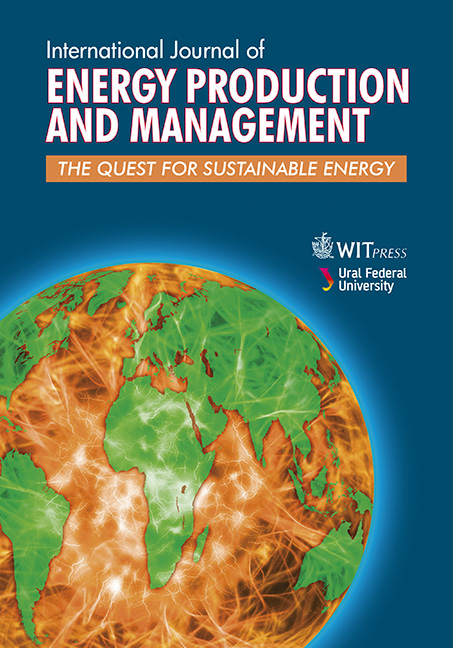Analysis of solar photovoltaic panel integrated with ground heat exchanger for thermal management
Price
Free (open access)
Volume
Volume 6 (2021), Issue 1
Pages
14
Page Range
17 - 31
Paper DOI
10.2495/EQ-V6-N1-17-31
Copyright
WIT Press
Author(s)
Hussain H. Al-Kayiem & Mayameen N. Reda
Abstract
In spite of high solar radiation being an advantage for the performance of solar photovoltaic (PV) panels, the caused high surface temperature of the panel surface reduces their efficiency, as well as lifetime span due to cyclic thermal stresses. PV panels are deteriorating due to two setbacks from a harsh climate: shallow temperatures during the night leading to condensation and overheating during the day leading to reduced efficiency. The present paper discusses and resolves the two setbacks in the PV performance by cooling the panel during the day and heating the panel during the night using water circulation in a ground embedded heat exchanger. Experimental and numerical methods were used to carry out the investigation on the influence of the proposed technique on the PV performance. Following the experiments, a computational model has been developed to simulate the experimental set-up. Two PV modules have been tested simultaneously in outdoor environment; one is bare and the second is integrated with ground heat exchanger. Results revealed that the integrated heat exchanger has managed to reduce the PV surface temperature by around 8oC during the daytime and rise the PV surface temperature by around 3oC more than the due temperature, at which condensation takes place during the night time. The developed technique has proved to be highly efficient as a PV thermal control method.
Keywords
Condensate in solar systems; Ground heat exchanger; integrated solar system; PV/T; Thermal control.




